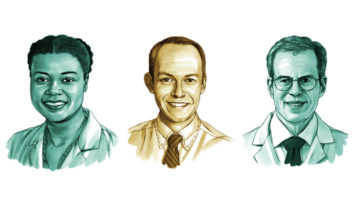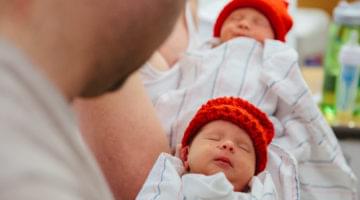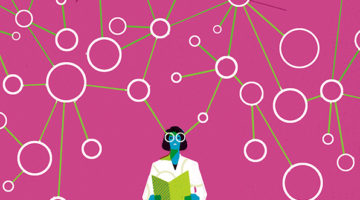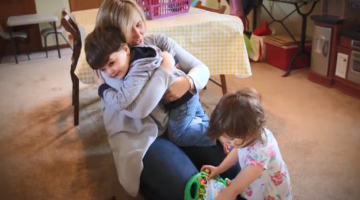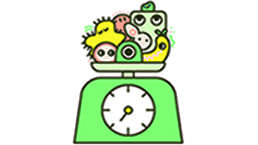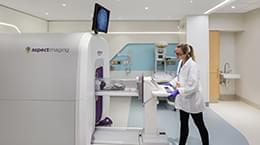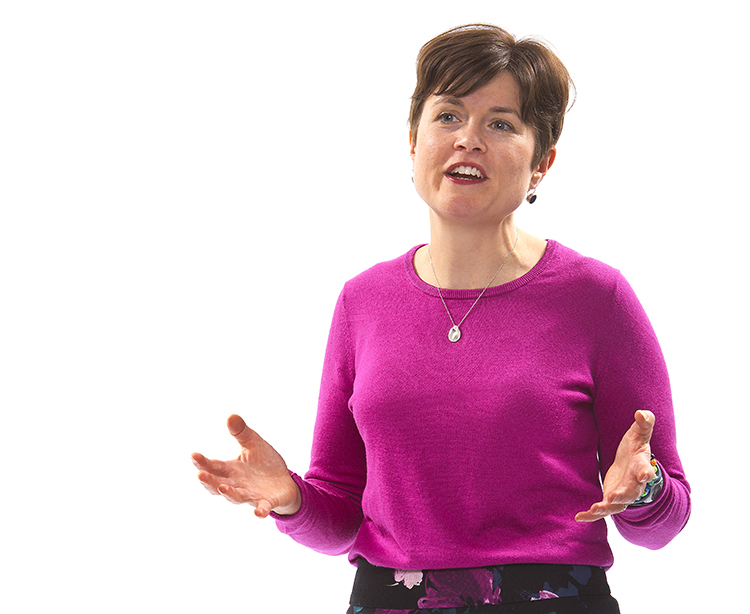
How did you get into nursing?
From volunteering as a candy striper when I was 12, I always wanted to work in healthcare. I started college as a biology major, and was on the fence about becoming either a doctor or a nurse. After the first year, my gut feeling was that I wanted to take care of people as a nurse. My grandmothers and aunts were nurses, so nursing felt right.
What drew you to working with babies?
In the summer of 1995, I read an article in The New York Times Magazine called “Does Anyone Here Think This Baby Can Live?” about the journey of a preemie born at the Brigham and thought, “I want to be a newborn ICU [intensive care unit] nurse!”
How did you end up doing research?
After graduating college, I got a job as a staff nurse in a NICU. I loved clinical care and working with patients and families, but I missed being in school. While I was getting my master’s degree, I worked as a research assistant for a PhD nurse who was an NIH-funded investigator. Until then, I didn’t know nurses did science. That’s when I got the research bug, so I went on and got my PhD.
How did you become interested in the microbiome of preterm infants?
When I was working as a staff nurse, I was caring for a preterm baby who was progressing nicely and scheduled to go home the next day. Overnight, she became catastrophically ill with a GI [gastrointestinal] disease called necrotizing enterocolitis [NEC]. It was so upsetting. I had no idea how this baby got so ill so fast, and wondered if I had missed something. We didn’t know a lot then about gut health in preterm babies, and especially NEC. She’s one of many patients who motivated me to study NEC to figure out how to prevent it. I am a classic example of how clinical and research experiences take you down paths you never knew you would find yourself on. In a million years, I never envisioned I’d be doing all things baby poop!
I am a classic example of how clinical and research experiences take you down paths you never knew existed. In a million years, I never envisioned I’d be doing all things baby poop!
Is GI disease in infancy a predictor of future GI disease as an adult?
It can be, but the more we learn about GI health and disease, the more I think GI health is a predictor of immune and brain health. Your gut serves two purposes: 1) digestion and absorption of nutrition and 2) immunity. The gut is the largest organ of immunity, with tremendous influence on inflammation. For these reasons, it plays a huge role in immune-mediated health and in brain and cognitive development, which are especially important for preterm infants.
How do you avoid confirmation bias in research?
Let your data speak to you, instead of speaking to your data. In my first project on newborns with NEC, I naïvely thought, “I’ll compare the microbiome of babies with NEC to the microbiome of babies without it, and we’ll see a difference and then we’ll know what probiotic we should give.” We learned that the biggest differences in their microbiomes were dictated by gestational age and the ages babies got sick. Those factors are as influential as nutrition, disease, antibiotic exposure, or mode of birth [vaginal or caesarean section]. We wouldn’t have seen that if we hadn’t taken a step back and looked at the data differently.
How does your training as a nurse influence how you approach research?
Nurses are trained to see the big picture of what’s going on with a patient and family. While I might want to focus on one specific pathway in research, my nursing training taught me to consider all factors that might be at play. It adds complexity, but it often provides better and bigger insights on the data.
Do you have a mantra or motto that is a touchstone for you?
Patience and persistence should never be underestimated. Another is a family mantra: Be empathetic and kind in all that you do. It’s how I was raised, it’s at the core of being a good nurse, and it applies to being a good scientist as well.
Are there areas in your work where you’re defying conventional wisdom?
There are sometimes biases about who can do science. Occasionally, I get challenged on how a nurse can be doing this work. So sometimes I feel like I am defying conventional wisdom.




